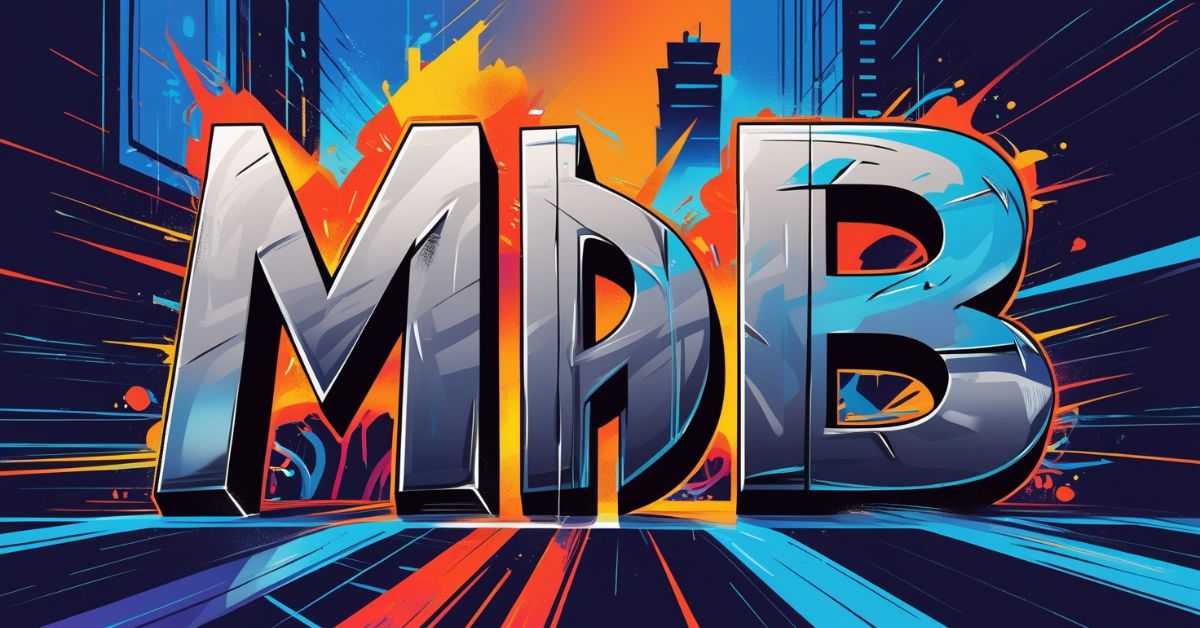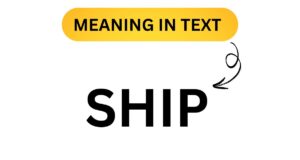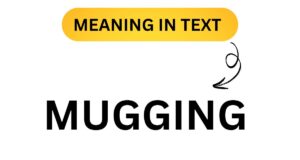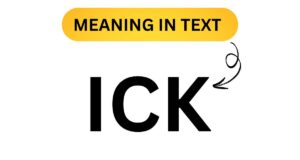If you’ve been scrolling through text messages, social media posts, or perhaps even overhearing conversations, you may have come across the mysterious two-letter combination: “MB.” No, it’s not some top-secret code or a shortcut for a new trending diet (though, let’s be real, that would be interesting).
Instead, “MB” is just one of the many slang terms that has found its way into the daily lexicon of internet-speak and casual chats. But, just like your favorite weird food combos (pineapple pizza, anyone?), it can leave you scratching your head and wondering, “What on Earth does this mean?”
Well, worry not, fellow internet traveler, because we’re diving deep into the world of “MB” slang to unravel its secrets and show you exactly how (and when) you should use it. So, buckle up, and let’s explore this little term together!
So, What Does “MB” Mean Anyway?
In its simplest form, “MB” stands for “My Bad.” Yep, that’s it. It’s a casual, often playful way of admitting a mistake or taking responsibility for something that went awry. It’s like saying “Oops, my bad!” but much more compact, saving you precious character space when texting or tweeting. (You know, for when you’re just too cool to type out a whole sentence like the rest of us mere mortals.)
Imagine this scenario: You’re on a group chat with friends, and you accidentally send a message to the wrong person. Instead of launching into a full-blown apology or explanation, you just casually drop a “MB,” and voila – problem solved. It’s like waving a magic wand to make awkward moments vanish (well, kind of).
Now, let’s break this down a little more.
How is “MB” Used in Real Life?
Let’s say you’re texting a friend, and something goes horribly wrong. You’re trying to make plans, but your message comes out sounding like you’re canceling the whole thing. Oops. You realize you’ve made a mistake. What do you do? Enter “MB.”
Scenario 1: The Texting Fumble
You: “Hey, are we still on for tonight?” Your friend: “Ummm… you just said we might not hang out anymore? Did you mean to send that to me?” You: “MB! I sent that to the wrong person. My bad. We’re still good for tonight!”
In this case, “MB” works as the perfect shorthand to make the apology quick, light-hearted, and easy. No need to get too heavy. The tone is casual and friendly, and you get back on track in no time.
Scenario 2: The Accidental Comment
Maybe you’re participating in an online discussion, and you say something a little off, like posting something irrelevant or accidentally disagreeing with your best friend. Rather than typing out a whole paragraph of apologies or awkward excuses, you simply drop a “MB.”
Friend: “Wait, you just said pineapple pizza is the best pizza? That’s, like, the worst opinion ever.” You: “MB! Just messing with you. I actually agree. 🍍🍕 but hey, different strokes, right?”
In this instance, “MB” helps ease any tension by showing that you didn’t mean to cause a stir, and you’re still cool with everyone. It’s that magical little apology that smooths over small blunders.
Is “MB” Only for Texting?
While “MB” is most commonly used in texting and online communication (where brevity is key), you might hear it used in real-world conversations, too. It’s not like you can just bust it out at a family dinner table (unless your family is super chill and loves to keep it modern), but it can make its way into casual chats. Picture this:
Scenario 3: Real Life “MB” Moment
You’re hanging out with friends, and someone tells a story where they accidentally offend someone. Instead of a long-winded apology or an awkward silence, one of the friends casually throws out an “MB” to lighten the mood.
Friend 1: “So I accidentally called Bob the wrong name three times during the meeting… MB.” Friend 2: “Haha, Bob will survive. He probably gets that all the time. My bad too for not calling him out sooner!”
Here, “MB” is used almost like a verbal shrug, signaling that no hard feelings are meant. It’s all in the spirit of keeping things low-stress and fun.
Common Misconceptions About “MB”
Okay, let’s clear up a few things. There are a couple of misconceptions that people might have about “MB,” especially when it comes to tone or context.
- “MB” Doesn’t Mean “Maybe”
For the love of all that is good in the world, please don’t confuse “MB” with “Maybe.” These two couldn’t be further apart. “Maybe” is used when you’re unsure about something, like deciding whether you want to go out tonight or not. “MB” is for when you’ve definitely messed up and you’re owning it. The only thing these two terms have in common is that they both have two letters. So, don’t go around using “MB” when you’re just unsure about something. It won’t work. - It’s Not Just for Big Mistakes
Another myth? Some people think “MB” should only be used for huge blunders. Not true! You can use it for any mistake, big or small. Got the name of your favorite show wrong? MB. Tripped over a chair and embarrassed yourself in front of your crush? You guessed it, MB. It’s for all those moments where you wish you could just rewind time for a second. - It’s Not Just a Teen Thing
You might think that “MB” is one of those slang terms that only teens use, but that’s not the case. While yes, it might be more common in younger generations, people of all ages have adopted it. So don’t be shy about using it, even if you’ve passed your “cool” phase (we’re all adults here – and adults can make mistakes too!).
When Should You Not Use “MB”?
As with all slang, context is key. While “MB” is casual and playful, there are times when it’s not the right fit. For instance, if you’re in a professional setting or discussing a serious issue, it’s best to save “MB” for later. If you’ve made a big mistake at work or hurt someone’s feelings, you might want to take a more formal approach to your apology. A heartfelt, “I’m really sorry for what happened,” would do the trick much better than a breezy “MB.”
Additionally, if you’re talking to someone who might not be familiar with slang, or if you’re in a group where the term might confuse people, it’s better to leave the “MB” out and go for something clearer. Not everyone is fluent in internet lingo, and you don’t want to leave them wondering what exactly you’re sorry for.
Wrapping It Up
So there you have it – “MB” is a simple, fun way to apologize for those little hiccups in life. It’s quick, casual, and easy to slip into your conversations without missing a beat. Whether you’re sending it in a text, saying it in person, or even throwing it into an online chat, it’s a nifty shorthand for owning up to minor blunders.
The next time you accidentally offend someone with a rogue comment, forget your friend’s birthday, or post an embarrassing selfie, just drop a cool “MB” and keep it moving.
At the end of the day, “MB” is all about keeping things light and not taking yourself too seriously. After all, we all make mistakes – and with “MB” in your linguistic toolbox, you can laugh it off with a little more swagger.









